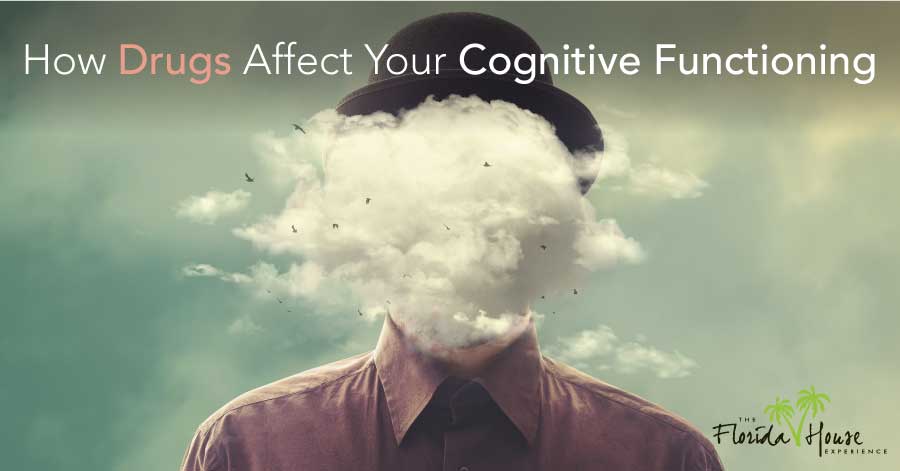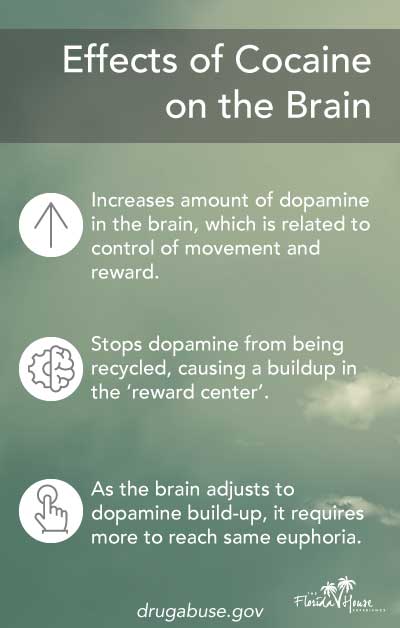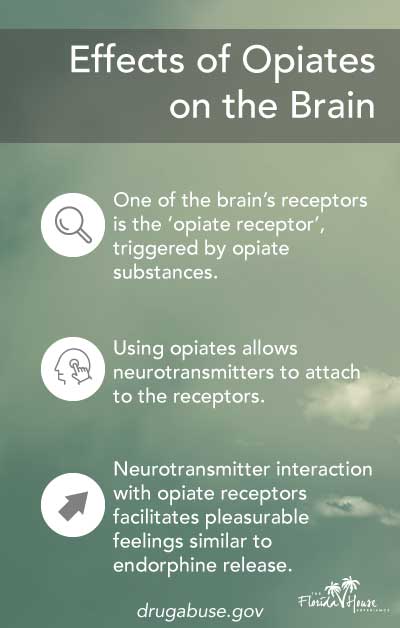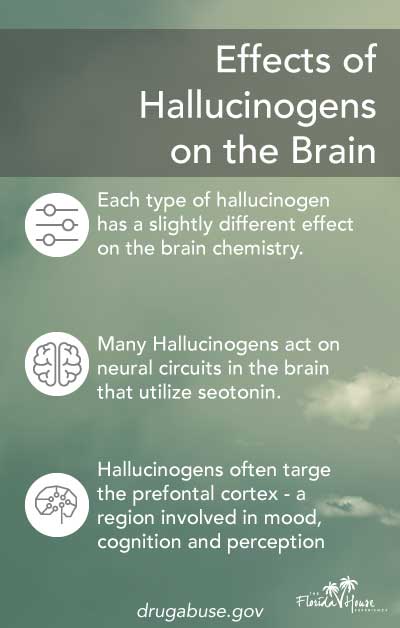
How Drugs Affect Your Cognitive Functioning
Drug addictions affect our livelihood. An insidious function of the drug tells us ‘we can conceal it’, ‘it is your secret’, yet it begins to affect everything. Our family, our friends, our children, our careers, it seems like nothing we can do can help. This downward cycle can be depressing, but did you know that drug addiction affects our cognitive functioning too? Cognitive functioning simply refers to our thinking, or mental activity. Drugs and alcohol change how your brain functions and gets worse with extended use. Additionally, your brain changes again when you stop taking drugs and begin to experience withdrawal symptoms. It may seem dark and without end, but there is always the possibility for recovery. Florida House Experience believes that we cannot separate the mental issues related to drug use, and drug addiction itself. If you are searching for a light at the end of the tunnel, we are here to talk to you. Our clinical team and on-site psychiatrists are experts on brain functioning and have world-renowned brain experts on staff, with state of the art brain imaging technology. Addiction is a disease that can be overcome with the right help. Give yourself all the tools necessary with a proper analysis and understanding of how your brain functions with and without drugs.
How Drug Addiction Affects the Brain

Cognition After Dependency
The media depiction of drug use skews our thinking, to make us perceive people who are “doped up” or using drugs as crazy or stupid. This is not the case, however, tests on the thinking of individuals who use drugs show staggering results. It may not always be slurring words, inability to balance, or so on, however, these are effects on our cognition. The repeated use of drugs can impact our brain to the point where we are unable to do things like sleep, walk in a straight line, or speak properly. The reason being is that drugs affect our brain, which in turn affects our behavior. We may think that our brain is functioning normally when in reality there are significant changes.
Memory

Motor Functioning
Below are a few points of research in relation to various chronic drug disorders and their effects on cognition.
- cocaine—deficits in cognitive flexibility
- amphetamine—deficits in attention and impulse control
- opioids—deficits in cognitive flexibility
- alcohol—deficits in working memory and attention
- cannabis—deficits in cognitive flexibility and attention
- nicotine—deficits in working memory and declarative learning
All of these are examples of the ways that drugs affect our thinking, but how do they affect our actions? All of us know that thoughts govern our actions, but our cognition really determines our motor functioning. You think (usually subconsciously) to move your arm and it moves, you want to walk and you do. However, after intense drug addiction, our motor functions slow. The pathways of the brain to our actions have become impaired and damaged. Thus, it is not uncommon to experience a delay in something we hear, and possibly the thing we say. Or, it could be something like changing the way we walk. Suddenly we have more trouble walking normally than usual. Often times it is a delay in what we think and what we do. These issues can extend long after a person become sober. Depending on how long you have been using drugs, the after effects on your motor function may be permanent. That being said, these motor skills and pathways can be rebuilt over time with the right guidance and resources. The first step is to seek help for your addiction right away, only then can you begin to rebuild your motor functions and prevent further damage. The second step is to ensure the treatment program you enter ha the ability to address these issues. The effects on the bring and very significant and without the proper doctor overseeing your recovery, you can miss out on vital advice and treatment options.
Mental Illness

Connect With Us
If you are struggling, we at the Florida Health Experience want to help you. Do not try to go somewhere and treat the addiction without the cognition. We want to do a bit of both. If you have any question or need more information about one of our incredible facilities, look no further than our contact number, (833) 596-3502. Along with this, we have a contact page that can help answer any questions or hear from you. Please do not hesitate. Reclaim your thoughts, cognition, and mental health today.
FHE Health has helped thousands of people get through addiction and mental health issues. We are experts in all aspects of brain function and addictive disorders and would love to help you get started on the right path. But you must make the first step and reach out for help.






